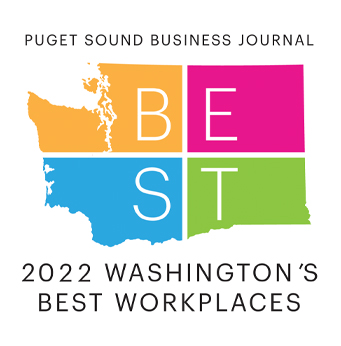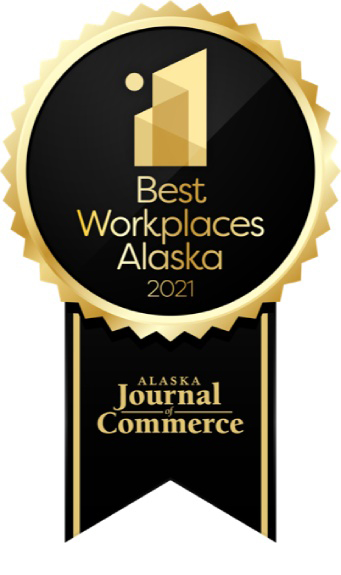Significant Employee Benefit Changes Contained in the American Rescue Plan Act (ARPA)
March 11, 2021
Congress passed the $1.9 trillion COVID relief bill, the American Rescue Plan Act of 2021 (ARPA). The bill includes significant employee benefits related provisions including a federal subsidy that will cover 100% of the cost of COBRA continuation coverage for up to 6 months for individuals who have had an involuntary termination of employment or reduction in hours. The bill also includes an increase in the amount an employee can elect to contribute tax-free to a §129 Dependent Care Assistance Program (DCAP).
COBRA Subsidy
The most significant benefits-related provision in ARPA creates a federal subsidy that will cover 100% of COBRA premiums for certain Qualified Beneficiaries (QBs) who have federal or state continuation of coverage rights following an involuntary termination of employment or reduction in hours. The QBs will pay nothing. The employer will pay the full premium due to the carrier or cover QBs at no cost on a self-insured plan. Employers will then recover the premiums through a payroll tax credit. There are also significant new notice requirements.
Subsidy Coverage Details
The subsidy runs from April 1, 2021 through September 30, 2021. The subsidy is available for QBs who become eligible for continuation coverage during the April 1 – September 30 timeframe, as well as those who previously became eligible for continuation coverage and are still within their maximum coverage period, but it is only available for COBRA coverage due to involuntary termination or a reduction in hours. Importantly, some previously eligible COBRA QBs not currently enrolled because they waived COBRA, or who elected COBRA and subsequently dropped it, will have a second chance to enroll in COBRA coverage to take advantage of the subsidy.
The subsidy will cover the full cost of continuation coverage at any coverage level (e.g., single or family) for employees and former employees, and their spouses or dependents who are QBs following an involuntary termination or reduction in hours. The subsidy is available for continuation coverage of any group health plans subject to COBRA (e.g., medical, dental, vision, etc.), but not health flexible spending accounts (FSAs). In addition, the subsidy will also apply to state continuation, which is similar to federal COBRA, when due to an involuntary termination or reduction in hours. The subsidy expires September 30, 2021, or sooner if the QB’s maximum coverage period expires or when a QB becomes eligible for other group health plan coverage or Medicare. A QB receiving the subsidy is required to notify the employer (or administrator) upon becoming eligible for other coverage and could face a $250 penalty for failure to notify the employer.
“Second Bite at the Apple”
Individuals who previously experienced an involuntary termination, or reduction in hours, but did not elect COBRA, or those who elected and have subsequently dropped COBRA coverage, and who are still within their COBRA maximum coverage period, must be given a second chance to elect COBRA to take advantage of the subsidy. If such individuals elect COBRA coverage within 60 days of being notified of the subsidy opportunity, coverage would be provided prospectively from the second election date, not retroactively to the original COBRA event date. There could be a lapse in coverage between the original COBRA event and the new special, second election. Employers cannot force the QB to pay back premiums to take advantage of this second election opportunity. In no case is an individual eligible for more than the COBRA maximum coverage period measured from the original event date.
Employer Tax Credit
Employers will recover premiums not paid by COBRA QBs through a payroll tax credit, similar to the manner in which employers recovered mandatory Families First Coronavirus Response Act (FFCRA) paid leave costs. If the tax credit exceeds the amount of payroll taxes due for a particular period, the employer can apply for a refundable tax credit. In most cases, however, the employer will have more payroll taxes due for any particular period than the amount of credit they can claim for lost COBRA premiums.
Notice Requirements
Existing COBRA election notices will need to be updated or supplemented with new language describing the subsidy. The rules include specific information that will need to be included in all COBRA election notices. There is also a new special notice that employers must send to any individuals who experienced a COBRA event due to an involuntary termination or reduction in hours and who are still within their 18-month maximum COBRA period. This notice informs these individuals of their right for a second chance at electing COBRA coverage. The special notice must be sent to eligible individuals no later than May 31, 2021 (60 days after the date the subsidy goes into effect). Additionally, a notice must be sent to anyone receiving the subsidy informing them when the subsidy is about to end. This notice must be sent between 15 – 45 days prior to the expiration of the subsidy.
The agencies are required to provide model notices to help employers satisfy these notice requirements.
Dependent Care Assistance Program (DCAP) Increase
For 2021 only, ARPA increases the amount which may be elected tax-free through a §129 Dependent Care Assistance Program (DCAP) from $5,000 to $10,500 (or from $2,500 to $5,250 for individuals who are married but filing separately). Employers have the option, but are not required, to increase the election amount on plans they sponsor. Employers will need to amend their DCAP plan by the end of the 2021 plan year to allow for this increased amount. It is unclear whether amounts from a 2020 carryover or grace period would count toward the total 2021 amount that may be reimbursed on a tax-favored basis.
Summary
The new COBRA rules obviously present an administrative challenge to employers and administrators, and it is expected that many individuals will take advantage of this opportunity to acquire health insurance at no cost. We expect the regulatory agencies to release some additional guidance and model notices, but with the short timeframe, it may come in the form of FAQs and informal guidance rather than regulations. Employers should coordinate with their COBRA administrators to ensure timely compliance with the COBRA subsidy requirements. In addition, employers who want to offer an increased DCAP election limit for 2021 should work with their administrators to adjust contribution limits and reimbursements, communicate the ability to increase elections to employees as soon as possible, and ensure plan amendments are made by the end of the 2021 plan year.
Parker, Smith & Feek will keep you up-to-date as regulations and FAQs are published. We are tracking COBRA administrators’ plans to administer the notice requirements and notification of individuals eligible for the COBRA subsidy.
The views and opinions expressed within are those of the author(s) and do not necessarily reflect the official policy or position of Parker, Smith & Feek. While every effort has been taken in compiling this information to ensure that its contents are totally accurate, neither the publisher nor the author can accept liability for any inaccuracies or changed circumstances of any information herein or for the consequences of any reliance placed upon it.



